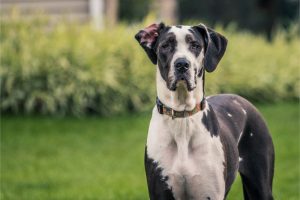Fact Versus Fiction: 5 Popular Dog Breed Myths Debunked
Fact Versus Fiction: 5 Popular Dog Breed Myths Debunked

Humans are wonderful story tellers. Since ancient times, we’ve created myths and legends – some of which are believable, and some of which are clearly ridiculous. because dogs have been our constant companions for 12 to 15 thousand years, it stands to reason that some myths have been created about them, too, including those related to breed.
It may be 2019, but there are still plenty of dog breed myths out there to confuse and misinform well intentioned dog owners. Let’s take a look at some of the most common misconceptions about dog breeds.
5 Common Dog Breed Myths
- Small dog breeds are yappy. Any dog is prone to bark if not trained and socialized properly, and small dog breeds are no different. The likely reason behind this common dog breed myth is that it’s easier to overlook small dog behavior than large dog behavior – as a result, small dogs often get less training overall. Every dog needs socialization and training preferably begun in puppyhood, to grow into a well adjusted and well behaved dog.
- Large dogs can’t live in apartments. Although there are some breeds (like border collies and pointers) that thrive on lots of room to run around, most dogs can be happy apartment dwellers as long as they get enough daily exercise and mental stimulation.
- Pit bulls are aggressive. In a peer reviewed independent study, pit bull breeds were not found to have any significant difference in aggression than other dog breeds. Providing care, socialization, training, and supervision is the best way to ensure that any dog breed can live happily and safely with other dogs and humans.
- Some breeds are hypoallergenic. All animals produce some allergens, which are typically the result of dander (dead skin cells). Some dogs with a single coat (Portuguese water dog, poodle, greyhound) may shed less, and therefore shed less dander, as opposed to double coated dogs. No dog is truly hypoallergenic, but single coated dogs that shed less may not evoke as strong an allergic reaction.
- Big dogs aren’t good with kids. Much to the contrary, many large dog breeds are great with children. A dog’s personality is more important than size when considering a family dog, and both kids and dogs need to be taught how to play safely together. Many large dog breeds can have hearts of gold with children, as long as they are socialized and trained from a young age. (do we sound like a broken record?).
Have you heard any other dog breed myths? Let us know on FaceBook or at your pet’s next wellness exam. As always, give us a call with any questions or concerns. The team at Parkside Animal Hospital is here for you!
